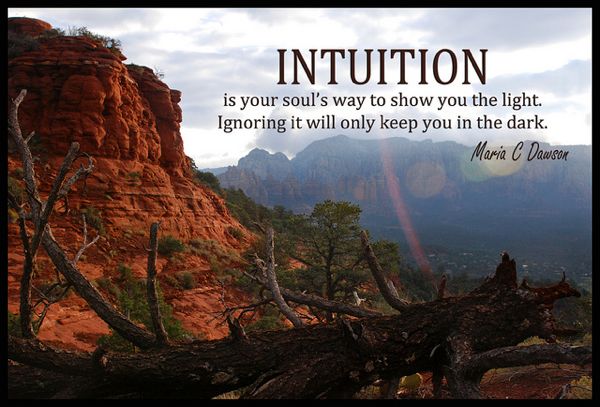Before I starting getting publishing contracts,
I spent a lot of years writing and trying to become a better writer.
A lot of years.
I submitted to some publishers and agents along the way, but what really helped me to improve my writing was one thing: submitting to contests.
Here’s how you, too, can use this tool to become a better writer, and get closer to that coveted publishing contract. Even if you choose to self-publish, contests can help you create a quality book that you’ll be proud of.
 Contests Are About More Than Prizes
Contests Are About More Than Prizes
I don’t remember exactly when I started entering contests. It was about ten years ago, and I think I just happened to see an ad in a writer’s magazine one day and figured, “What the heck. I’ll give it a try.”
When I first started entering contests, like most writers, I hoped my books would make the finalist cut, and dreamed of maybe earning a prize somewhere down the road.
But what really pushed me over the edge and helped me to make the commitment to enter was one thing: critiques.
As a young writer, most of us long for feedback on our work. We often write in isolation for years, oblivious as to whether we’re doing it “right” or not. Only by showing our work to others can we receive that feedback we need to improve our craft.
But getting feedback is a tricky thing. If you show the book to your spouse, your friends, or your mom, for instance, you’re likely to get overly positive feedback.
These people care about you, and want to build you up, so they’re probably going to hesitate when providing any construction criticism. (Unless you have a sibling that has always enjoyed making you squirm a bit.)
Writer’s groups aren’t always the most helpful, either. Members often come from different backgrounds and bring different levels of experience to the table. That means some of their feedback may be helpful, but some may not—and some could be downright destructive.
In fact, the wrong kind of feedback can destroy a young writer, so you have to be very careful. You don’t want your budding talent squashed before you get it off the ground.
 Contests Provide Unbiased Feedback
Contests Provide Unbiased Feedback
What you need is feedback from strangers—people who don’t know you and have no emotional ties that could sway their feedback. Instead, they’re just looking at your story and judging it strictly on its merits as a story.
That’s where contests can be really helpful. Many offer critiques—I highly recommend entering these.
But don’t stop there. You still have to learn how to read, interpret, and act on writing critiques, and that takes time and a lot of critiques.
If you limit yourself to one, for example—say you hire a book doctor or single book editor, or you enter only one contest to get one critique—you run the risk of putting too much credence in what one person has to say.
Maybe that person is right about some things. Maybe your pacing, for example, is too slow. But maybe he also says that your idea lacks market appeal, your plot is unbelievable, or your antagonist is all wrong, and you should change it.
This could spell bad news for your book.
This is where contests can be really helpful. Many of them offer two-to-three critiques per entry, which means that your story is read and critiqued by more than one person. The beauty of this is that you more than one critique back at the same time, and you can compare.
This is a really good exercise for three reasons:
- You learn through direct evidence that everyone’s opinion is objective.
- You learn what’s going right with your book.
- You learn what you may need to work on.
 Learning to Interpret Critiques
Learning to Interpret Critiques
I can’t tell you how many times I got two critiques that opposed each other. One praised my dialogue, while the other said the dialogue needed work. One loved my setting descriptions, whereas the other said I needed to include more detail.
It became almost laughable, which was great for me, because early on, I tended to believe everything about a critique, and would get very discouraged with the negative feedback.
Seeing these opposing points of view taught me one thing very clearly—opinions are subjective, and when it comes to your work, you have to trust your gut.
How do you do that? It takes practice, but the more critiques you receive, the better you’ll get at it. I’ll talk more about this below.
Before we get to that, there’s the other side of the coin. When you get two-to-three critiques, something else happens. They will usually agree on a few things. T
hese are the things you want to pay close attention to. If they all love your concept, for instance, you can feel confident about moving forward with it. If they all love your main character, or your opening paragraph, then you can rest easy that these things are probably going well.
Then they will agree on some things you need to work on, too. Again, these are things you really want to pay attention to. If your ending confuses them all, for example, look at it again. If two of them can’t understand your antagonist’s motivations, then again, that’s something to consider investigating.
And this is where your gut comes into play.
Listen to Your Gut Before Making Changes
As you review your critiques—the more the better—write down those comments that they all have in common. (Or the ones that more than one person mentioned.)
Usually it’s best to give the critiques a few days to sit. We all experience emotions in response to feedback—elation at the positive comments, pain at the negative ones. We need time to let those emotions cool so we can look more objectively at our own work.
Then sit down and read the “in common comments” again and tune into your gut. If something stirs—if you feel some sort of inner recognition in response to that comment—then go back and work on that part of your story.
This method really works. Almost every time without fail, when a couple people pointed out something that’s wasn’t quite working with a story, I realized I already knew it, but just needed that little push to take action. Going through this exercise with your story critiques can really propel your growth as a writer.
 As you continue to enter contests each year, review the critiques, apply what you learn, and your writing will improve. Eventually, when you start to earn some accolades—your story is chosen as a finalist or even places in the top ten—that’s even more feedback that you’re on the right track.
As you continue to enter contests each year, review the critiques, apply what you learn, and your writing will improve. Eventually, when you start to earn some accolades—your story is chosen as a finalist or even places in the top ten—that’s even more feedback that you’re on the right track.
Bonus if you get some cash and recognition, right?
If you’re ready to go for it, you can find a good list of writing contests at these sources:
- Poets & Writers Magazine and Website
- Writer’s Digest Magazine
- The Writer Magazine and Website
- New Pages Website
- Funds for Writers Website
- Tethered by Letters
Have you benefited from writing contests?
Photo credit for last photo: Maria C Dawson|Stupefied via Foter.com

